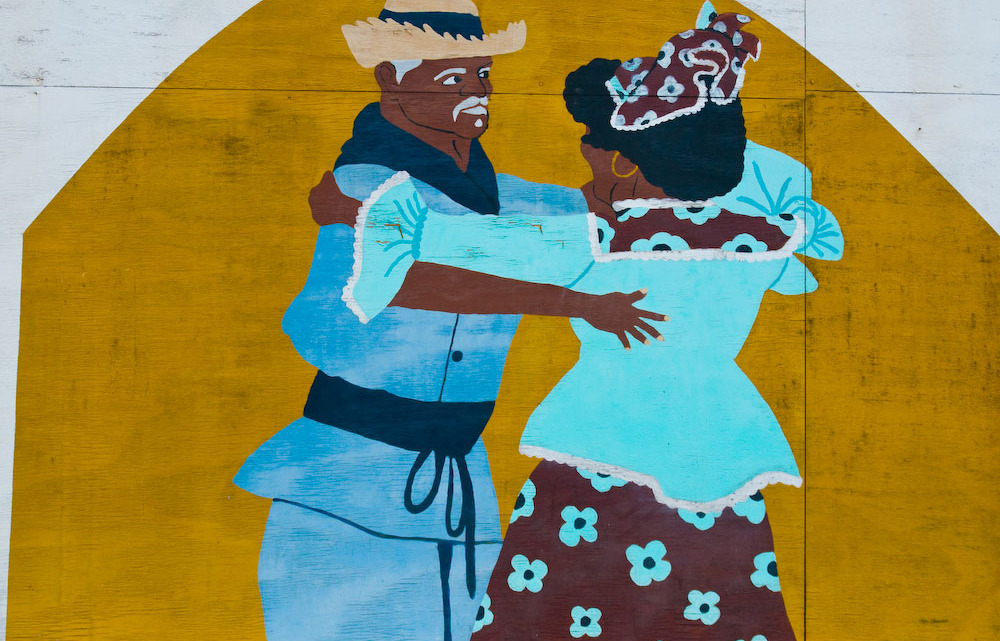When you arrive at the Curaçao International Airport, you’re greeted by not only the warm breeze and friendly smiles, but also with a sign that says Bon Bini or Welcome in the local language called Papiamento. Revered for its sandy beaches and cosmopolitan flair, what also make Curaçao inimitable are the many languages spoken by islanders.
Although Dutch is the official language and English and Spanish are widely spoken, a mélange of Spanish, Portuguese, Dutch, French, English, African and Arawak Indian called Papiamento is also heard on the Dutch islands of Curacao, Aruba and Bonaire. One of just a few Creole languages that have survived to the present day, Papiamento is based on words in the Spanish and Portuguese dictionary. Derived from the Spanish “papear” or “to speak, historians believe Papiamento originated in the 17th century as a means of communication between West African slaves and their Portuguese masters. Today, Papiamento is spoken by virtually everyone in the Dutch Caribbean and while various nations have governed Curaçao over the years, Papiamento remains the favored language of locals.
“We call Papiamentu ‘Tutti Frutti’, said Andre Rojer, marketing manager, Curaçao Tourist Board, ” because it represents the wonderful mixture of people and cultures that make up Curaçao.” Visitors who with speak or understand Spanish, French or Dutch, are able to quickly learn a few phrases in Papiamento like ‘kon ta bo number’ which means ‘what’s your name, ‘mi ta bai bon, danki’ which translates to a simple ‘I am fine, thank you’ and the word ‘dushi ‘which you’d use to grab the attention of your sweetie.
Linguistic scholars believe islanders have an instinctive flair for languages as words and phrases from four or five different languages are often heard in one conversation. Taxi drivers, tour guides and hotel staff are pleased to teach their guests a few phrases while tourists with savoir-faire enjoy reading the island newspaper called La Prensa in order to become familiar with Papiamento.
Eugene Clements is the Visitor Information Officer with the Curacao Tourist Board and the unofficial ambassador of Papiamento. “I am happy to teach tourists a few words because that gives them an authentic island experience,” he says touring a family through the capital city Willemstad, “I am so proud of our destination and its many unique aspects that our tourists remember even when they go home.”
Speaking Papiamento – A Primers Dictionary
| Papiamentu | English |
| Bon Bini | Welcome |
| bon dia | good day (before noon) |
| bon tardi | good afternoon |
| bon nochi | good evening; good night |
| danki | thank you |
| por fabor | please |
| di nada | you are welcome |
| mi number di telefon ta … | my phone number is … |
| bél mi | call me |
| kon ta bai ku bo | how are you? |
| kon ta ku bida | how is life? |
| hopi bon | very good |
| tremiento | very good |
| trankilo | calm |
| terible | terrible |
| den gran forma | in great shape (said among young people) |
| hopi kalor/caliente | very hot/warm |
| ata aki / ataki | here is the (the second “a” is not pronounced) |
| mi tin hamber | I am hungry |
| mi ke kome | I want to eat |
| lihe, pura, rapido | fast, quick |
| yufrow | Miss |
| señora | Misses |
| mai | very old lady (used instead of Miss) |
| mener | Sir, Mr. |
| flet tair | flat tire |
| sigur | sure |
| pakiko | why? (as in “what for?”) |
| dikon | why? (as in “what is wrong with you?”) |
| di cón | why |
| i | and |
| awe | today |
| ayera | yesterday |
| pan | bread |
| na cas | at home |
| awa | water |
| paña nobo | new cloths |
| casá, esposa, señora | spouse, wife |
| casá, esposo | spouse, husband |
| cuá | which |
| kí | what |
| nada | nothing |
| cu mi | with me |
| pa mi | for me |
| tur cos | everything |
| tur hende | everybody |
| tur caminda | everywhere |
| mainta | morning |
| merdía | noon |
| tramerdia | afternoon |
| ningun hende | nobody |
| sin | without |
| si | if |
| bon | good |
Courtesy – www.papiamento.com/
Days of the week
| English | Papiamentu |
| Sunday | dia domingu |
| Monday | dia luna |
| Tuesday | dia mars |
| Wednesday | dia rason |
| Thursday | diaweps |
| Friday | diabièrne |
| Saturday | dia sabra |
Months of the Year
| English | Papiamentu |
| January | januari |
| February | feruari |
| March | maart |
| April | april |
| May | mei |
| June | juni |
| July | juli |
| August | augustus |
| September | september |
| October | october |
| November | november |
| December | december |
Shopping
- kwanto esaki ta costa: How much does this cost
- Mi ta wak rond: Looking around, browsing
- Ban dal un trip: Lets go out on a trip
- Banco: The Bank
- Plaka: Money
- Ki pelicula ta hunga awe?: What movie is playing today
- keds: Sneakers
- sapato: Shoes
- den caya: In the town
- Mi tin sed: I’m thirsty
- Mi tin hamber: I’m hungry
- Ban kas: Lets go home
- Botica: Drugstore













No Comment